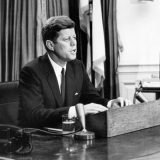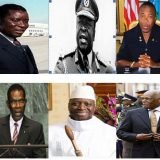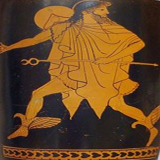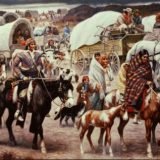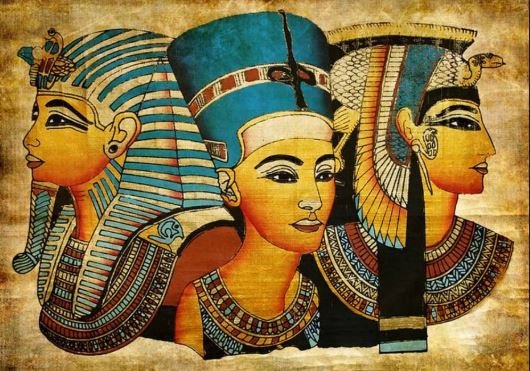Category: British History
Understanding British history is fundamental for comprehending the development of Western political and cultural institutions.
Below, World History Edu present some of the most frequently asked questions:
- When did the Romans invade Britain?
- The Romans first invaded Britain in 55 BC under Julius Caesar. However, the more significant and successful invasion took place in AD 43 under Emperor Claudius.
- Who was King Arthur?
- King Arthur is a legendary British leader who, according to medieval histories and romances, led the defense of Britain against the Saxon invaders in the late 5th and early 6th centuries. The details of his story are a mix of folklore, historic events, and literary invention.
- What was the Magna Carta?
- The Magna Carta, signed in 1215 by King John of England, was a charter that limited the power of the monarchy and granted certain rights to the nobility. It’s considered a foundational document in the development of individual rights and the rule of law.
- Why did the English Civil War happen?
- The English Civil War (1642-1651) was a series of conflicts between Parliamentarians and Royalists, primarily over issues of religious freedom, governance, and King Charles I’s rule. The war ended with the trial and execution of Charles I.
- Who was Oliver Cromwell?
- Oliver Cromwell (1599-1658) was a military and political leader who played a central role in the English Civil War. He served as Lord Protector of the Commonwealth of England, Scotland, and Ireland from 1653 until his death.
- What was the Industrial Revolution?
- The Industrial Revolution was a period in the 18th and 19th centuries when major changes in agriculture, manufacturing, mining, and transportation had a profound effect on the socioeconomic and cultural conditions in Britain.
- What caused the British Empire’s expansion?
- Multiple factors, including the desire for trade, the search for new markets, strategic considerations, and the spread of British cultural and religious values, contributed to the empire’s growth.
- When did World War I and World War II take place?
- World War I lasted from 1914 to 1918. World War II lasted from 1939 to 1945.
- What was the “British Raj”?
- The “British Raj” refers to the period of British colonial rule over the Indian subcontinent between 1858 and 1947.
- Why did the British vote for Brexit?
- In a 2016 referendum, 51.9% of British voters chose to leave the European Union. Reasons varied but included concerns over sovereignty, immigration, and economic regulations.
- Who were some of the most notable British monarchs?
- Notable monarchs include Alfred the Great, William the Conqueror, Henry VIII, Elizabeth I, Victoria, and the current monarch, Elizabeth II.
- What was the Battle of Hastings?
- The Battle of Hastings took place in 1066 and saw the Norman duke William the Conqueror defeat the English king Harold II. It marked the beginning of Norman rule in England.
- What is the significance of the Act of Union 1707?
- This act unified the separate kingdoms and parliaments of England and Scotland to create the Kingdom of Great Britain.
- When did Britain decolonize Africa?
- The process of decolonization in Africa began after World War II and peaked in the 1960s. By the late 1970s, most of Britain’s African territories had gained independence.
Camulodunum, known today as Colchester in Essex, is a site rich with history, beginning long before Roman intervention. Its original name, “Camulodunon,” translates to the “stronghold of Camulos,” the Celtic...
David II (1324–1371) became King of Scotland in 1329 at age five, following his father, Robert the Bruce. Crowned in 1331, he faced challenges from Edward Balliol and Edward III...
Alfred Tennyson, 1st Baron Tennyson, was a celebrated English poet whose works defined much of the literary landscape of Victorian England. Born on 6 August 1809 in Somersby, Lincolnshire, Tennyson...
Hawthornden Castle, located in Midlothian, Scotland, stands as a testament to centuries of Scottish history, literature, and architecture. Perched above the River North Esk and surrounded by natural beauty, the...
Epaticcus, also known as Epaticcu, was a notable figure in Iron Age Britain, remembered primarily for his political and military activities. A brother of Cunobelinus, the king of the powerful...
Caradog ap Bran is a central figure in Welsh mythology, known for his noble lineage and his role in the mythological tales of the Mabinogi. He is the son of...
Caratacus, also known as Caractacus, stands as a pivotal figure in early British history, renowned for his unwavering resistance against the Roman conquest of Britain in the 1st century AD....
The Second War of Scottish Independence (1332–1357) was a pivotal conflict in medieval British history, emerging from the unresolved tensions following the First War of Scottish Independence (1296–1328). The initial...
Sir Alexander Ramsay of Dalhousie was a distinguished 14th-century Scottish nobleman and knight, remembered for his valor, strategic acumen, and tragic end. Born around 1290, Alexander was the eldest son...
The Battle of the Monongahela, fought on July 9, 1755, during the French and Indian War (1754–1763), was a pivotal encounter between British forces led by General Edward Braddock and...
William Howe, 5th Viscount Howe, was a prominent British Army officer and military leader whose career spanned several major conflicts, including the War of the Austrian Succession, the Seven Years’...
Thomas Gage was a British Army officer and colonial administrator whose career spanned critical moments in North American history, including the French and Indian War, Pontiac’s War, and the early...
Edward Braddock’s life and military career exemplify the challenges of commanding forces in a new and unfamiliar environment. While his leadership ended in a tragic defeat, his campaign highlighted the...
Daniel Hyacinthe Liénard de Beaujeu (9 or 19 August 1711 – 9 July 1755) was a French military officer whose career spanned significant conflicts in North America, including King George’s...
Algernon Charles Swinburne (April 5, 1837 – April 10, 1909) was a prominent English poet, playwright, novelist, and critic whose works left an indelible mark on Victorian literature. Known for...
























